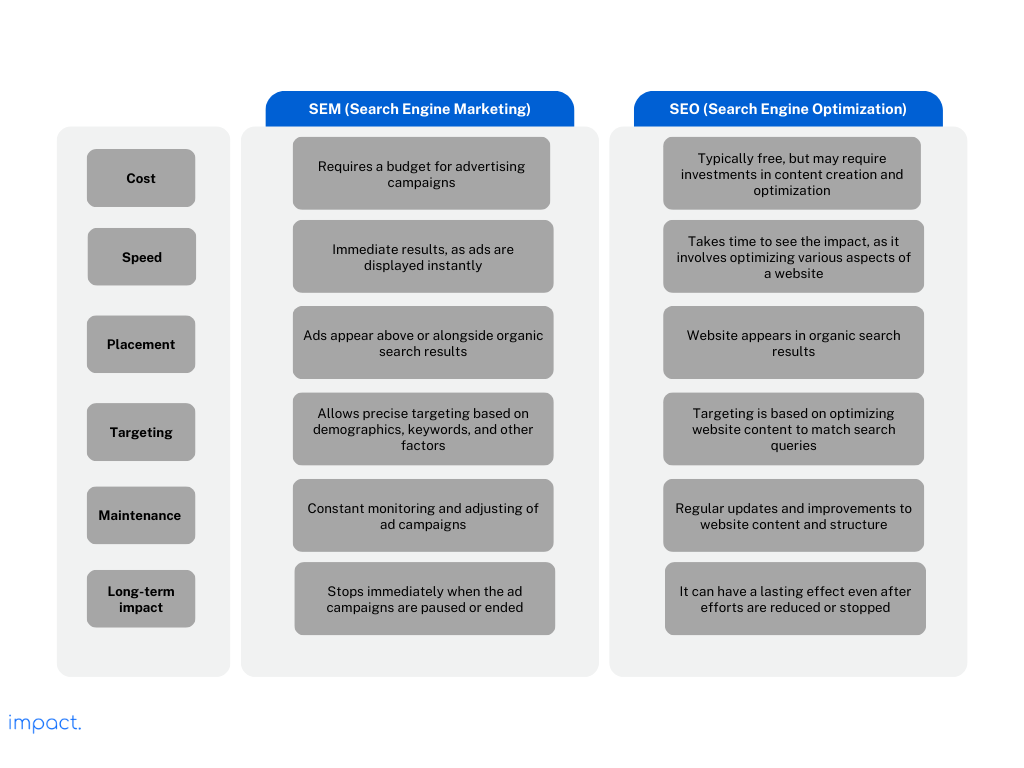Kanban: Definition, 6 Rules, and its Benefits
Kanban is a crucial part of the Just in Time (JIT) system, which we discussed…
Sean Thobias
May 17, 2025In today’s digital world, having a solid online presence is vital for businesses and websites to succeed. That’s where Search Engine Optimization (SEO) comes in. It is like the secret code search engines use to find and rank websites based on relevance and credibility.
By understanding and applying its basics, you can make your website more visible on search engine results pages, attract more organic traffic, and drive growth for your online presence.
The strategy can be overwhelming if you’re new to the concept. However, this is where our guide comes in. We’ll break down the complex concepts to guide you through each step of the SEO journey.
We’ll explore its fundamentals, search engines, keyword research, on-page optimization, technical aspects, and more. By the end of this guide, you’ll have a solid understanding of the core principles of SEO, empowering you to make informed decisions and take actionable steps to improve your website’s search engine rankings.
The SEO we know today is about improving websites and online content to make them more visible and higher-ranked on search engine results pages (SERPs).
The strategy’s primary goal is to attract more visitors from search engines by making websites more relevant and appealing to search engines and users. Search engines like Google, Bing, and Yahoo! are essential for SEO. They go through websites, organize them, and decide their ranking based on relevance and quality.
When a website is optimized, it has a higher chance of showing up at the top of search results. It makes it easier for people to click on it, visit the site, and become customers.
Search Engine Optimization is crucial for making your website easier to find on search engines and providing other valuable benefits. Let’s look at some of these benefits:
Read more: Unlocking Growth: 19 Traction Channels for Business Success
Many people mix up SEO and SEM (Search Engine Marketing), but they are different. Search Engine Optimization is about improving your website to make it easier for people to find when they search online. It aims to attract organic traffic.
On the other hand, SEM is a paid digital marketing strategy that boosts the visibility of your business’s products or services on search engine result pages (SERPs).
Here’s a table summarizing the key distinctions between SEM and SEO.

Read more: SEM: Definition and 3 Mechanics to Appear Higher on Searches
Here are three common types of Search Engine Optimization used to improve website visibility and rankings. We will discuss these different types in further detail in the upcoming chapters of our guide.
This type focuses on optimizing your website’s content and structure to make it more appealing to search engines.
On-site SEO involves techniques such as:
On-page SEO is essential for ensuring that search engines understand what your website is about and rank it higher in search results.
This type deals with the technical aspects of your website that affect its search engine visibility and crawling. Technical SEO ensures that search engines can easily access, crawl, and index your website’s pages.
Technical SEO involves:
Technical SEO helps improve the overall user experience. It makes it easier for search engines to understand and rank your website.
Unlike on-page SEO, this type is all about activities outside your website that still impact its search engine rankings. The main focus here is building high-quality backlinks from other websites to your own.
Backlinks act as “votes of confidence” for search engines, indicating that your website is trustworthy and authoritative. Off-page SEO involves social media marketing, influencer outreach, and online reputation management. These efforts help increase your website’s visibility, credibility, and overall online presence.
Read more: Social Media Marketing: A Guide & 3 Strategies for Success
If you want your website to appear higher in search engine results and get more visitors, here are some essential SEO tips. These best practices will help you improve your site’s visibility and attract more traffic.
Don’t use sneaky tactics like Black Hat to trick search engines and improve your ranking. Things like stuffing your content with too many keywords, hiding text, and using shady link schemes can get you in trouble with search engines. Avoiding these practices is essential because they can lead to penalties and harm your website’s visibility.
Optimizing your website for mobile users is crucial to attract more visitors and improving your website’s performance. Ensure your site loads quickly, works well on different screen sizes, and provides a seamless experience.
People expect websites to load in about 3 seconds or less. If it takes longer, around 40% of users might leave. Plus, mobile optimization keeps users happy and helps your search engine rankings. The most popular search engine, Google, considers user experience a significant factor in determining search results.
Search engines like Google always make changes to improve their search results. In 2010, they made around one change daily, but in 2018, they made multiple changes daily. It’s essential to stay updated on these changes and adjust your Search Engine Optimization strategies accordingly. Stay informed by reading trustworthy blogs related to the subject and keeping up with the latest trends and algorithm updates.
Boost your Search Engine Optimization efforts with the power of social media. Engage with your audience, share your content, and encourage others to do the same. Social media signals like likes, shares, and comments can indirectly impact your search engine rankings. Plus, social media profiles and posts can appear in search results, giving you more visibility online.
Read more: Tracking SEO Performance: 11 Key Metrics to Know
Mastering the fundamentals of Search Engine Optimization is crucial for businesses aiming to increase online visibility and attract more visitors from search engines. By optimizing your website and content, you can enhance user experience, establish trust and credibility, gain a competitive advantage, measure success through measurable metrics, and improve user engagement rates. These benefits drive traffic and contribute to long-term customer advocacy and revenue growth.
In the upcoming chapter, we will delve into the mechanics of search engines and how they function. We can develop effective optimization strategies by learning how these search engines rank and organize websites. This will prove to be a valuable insight into your SEO efforts.
Impact Insight Team
Impact Insights Team is a group of professionals comprising individuals with expertise and experience in various aspects of business. Together, we are committed to providing in-depth insights and valuable understanding on a variety of business-related topics & industry trends to help companies achieve their goals.
Ask about digital transformation, our products, pricing, implementation, or anything else.
We are excited to be part of your transformation journey from day one.
